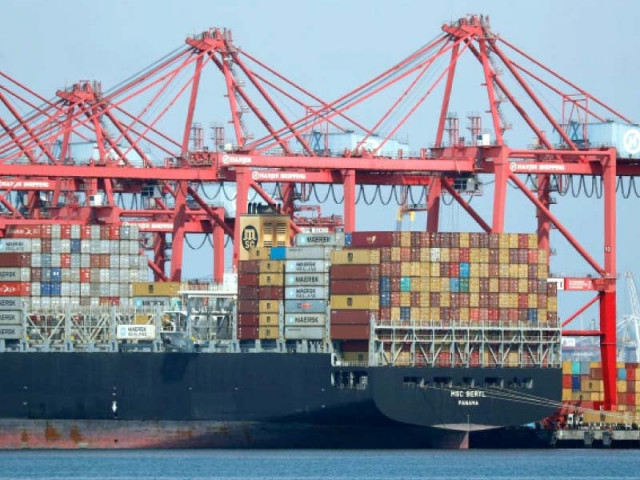Pakistan geographically poised for trade: Alvi
Regional connectivity not just a function of political ties but also of infrastructure

President Arif Alvi has underscored the importance of Pakistan’s geographic location, underlining the importance of the business community taking advantage of this unique position by promoting trade and exports. The government is fully aware of the problems of SMEs and will provide a conducive environment for the business community, he said.
While addressing the 45th Federation of Pakistan Chamber of Commerce and Industries (FPCCI) Export Awards, Alvi noted that Pakistan’s location connects it to South Asia, Central Asia and West Asia. “South Asia is the least integrated trade block in the world,” explained Ehsan Malik, CEO of the Pakistan Business Council (PBC).
“Hardly any country has ever progressed without trading with its neighbours,” he added. “Undoubtedly, Pakistan is at a prime location from a trade perspective, however, it has not been able to take advantage due to the geopolitical situation in the region,” said Abid Qaiyum Suleri, a former member of the Prime Minister’s Economic Advisory Council.
“Trade with South Asian countries became more difficult after India changed Kashmir’s status, abolishing Article 370. Likewise, until the Afghanistan situation does not improve, we cannot access Central Asia for trade and regional connectivity,” he added. However, geography and political conditions are not the only limitations. Regional connectivity is not just a function of political relations but also of infrastructure.
The PBC CEO underlined that “Pakistan has deindustrialised prematurely. Many simple items of daily use are imported. Industries are overburdened with taxes and regulations, and policies are inconsistent. The energy cost is 40% higher than in the region and labour productivity remains low.”
“SEZs remain a wish list. All these factors render exports uncompetitive,” he said. “We are heavily reliant on the export of textile, which Bangladesh and India produce more efficiently than us,” pointed out Malik. “However, Pakistan can benefit from cheaper imports particularly of food items and cotton from India and fuel from Iran,” he suggested.
Arif Habib Limited (AHL) Head of Research, Tahir Abbas noted that “Pakistan’s geographical location is of vital importance in relation to connectivity from East Asia to West Asia, leading towards Europe.”
“Accordingly, this was CPEC’s prime game plan which was to reduce trade time along with trade cost from East Asia to the European markets. However, the government needs to further focus on infrastructure projects, especially in the port cities tagged with the road infrastructure and connectivity, so that the country can get maximum benefit out of it,” commented Abbas.
Published in The Express Tribune, October 1st, 2022.
Like Business on Facebook, follow @TribuneBiz on Twitter to stay informed and join in the conversation.


















COMMENTS
Comments are moderated and generally will be posted if they are on-topic and not abusive.
For more information, please see our Comments FAQ